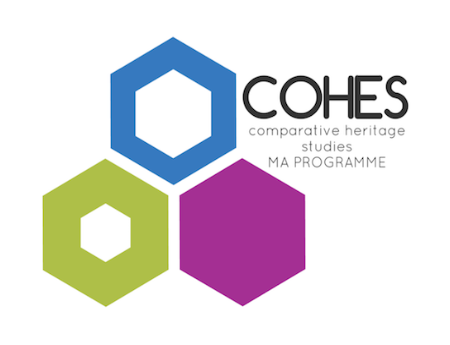
Programme carried out as part of the project co-financed by the European Funds "COHES - Comparative Heritage Studies", the aim of which is to improve the accessibility of the international education program for students from Poland and abroad by creating an interdisciplinary education program at the Faculty of Polish Studies of the Jagiellonian University and a new specialization in English as part of full-time second-cycle studies in the field of cultural studies
Field of study: Cultural Studies
Speciality: Comparative Heritage Studies
Programme type: graduate (second-cycle)
Study mode: full-time
Title: master
Number of semesters/years: 4/2
Language of instruction: English

Programme carried out as part of the project co-financed by the European Funds "COHES - Comparative Heritage Studies", the aim of which is to improve the accessibility of the international education program for students from Poland and abroad by creating an interdisciplinary education program at the Faculty of Polish Studies of the Jagiellonian University and a new specialization in English as part of full-time second-cycle studies in the field of cultural studies
Co-financing of the project from the EU: PLN 736 812
Programme description
This two-year full-time Comparative Heritage Studies (COHES) MA programme offers a wide range of knowledge on cultural heritage in literature, art, theatre, architecture, urban space, and sites of memory, particularly those found in Krakow and inscribed on the UNESCO World Heritage list. The COHES programme focuses on the multi-ethnic, multinational, multilingual nature of heritage, approaching it from three angles: Digital Heritage, Visual Heritage, and Comparative and Translated Heritage.
Graduate profile
The knowledge gained by COHES graduates will allow them to broaden their understanding of the dynamics shaping heritage in the contemporary world, both in symbolic and material terms. Graduates will be prepared to identify and analyse social, cultural, and political actions that affect the recognition and protection of cultural heritage, as well as its management and education. They will receive qualifications to work in international cultural centres, particularly museums, archival/research, diplomatic, or academic institutes, publishing houses, and libraries. These studies will train young scholars to use interdisciplinary tools in a critical and comparative fashion, helping them to work in multilingual and multicultural environments.
CONTACT:
E-mail:
Mr. Michał Zając: cash@uj.edu.pl
Adress:
Centrum Studiów Humanistycznych
Uniwersytet Jagielloński
ul. Grodzka 64
31-044 Kraków
tel./fax +48 12 663 18 20

